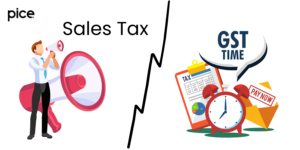An Overview of ASP in GST: Roles and Benefits
- 15 Aug 24
- 15 mins

An Overview of ASP in GST: Roles and Benefits
- What is ASP (Application Suvidha Provider)?
- Role of ASP in GST
- Uses of GST Suvidha Provider
- What are Application Service Providers (ASPs)?
- Benefits for using an ASP who is also a GSP
- 5 Major roles of Application Suvidha Provider (ASP) under GST
- What is GSP (GST Suvidha Provider)?
- Role of GSP in GST:
- Differences between Application Suvidha Provider (ASP) and GST Suvidha Provider (GSP)
- Conclusion
Key Takeaways
- Critical Compliance Tool: ASPs are essential for businesses to meet their GST obligations efficiently and accurately.
- Automation of Tax Processes: They automate complex tax processes, reducing the chance of human error and non-compliance.
- Real-Time Data Handling: ASPs manage and reconcile transaction data in real time, ensuring timely and accurate GST filings.
- Customized Solutions: They offer customized solutions tailored to specific business needs, enhancing the effectiveness of GST management.
- Expert Guidance: ASPs provide expert guidance on GST regulations, helping businesses navigate the complexities of compliance.
The Goods and Services Tax Network (GSTN) has introduced several facilitators to assist businesses and taxpayers in managing their compliance under GST smoothly and effectively. Among these facilitators are the GST Suvidha Provider (GSP) and the Application Suvidha Provider (ASP). This article aims to demystify these roles and explain their significance in the GST ecosystem.
What is ASP (Application Suvidha Provider)?
An ASP, or Application Suvidha Provider, is a part of India's GST (Goods and Services Tax) framework, designed to assist businesses in complying with the complexities of GST through technology solutions. ASPs offer software applications that help businesses manage their GST obligations. These applications typically provide functionalities for preparing and filing tax returns, handling supply invoices, and managing compliance documentation effectively.

ASPs work by integrating with the GSTN (Goods and Services Tax Network), the official online portal that facilitates GST compliance. They are not directly part of the GSTN but work as intermediaries to enhance the user experience and streamline the complete process of tax filing and compliance management.
Businesses use ASP services to ensure that their filings are accurate, secure, and in line with the latest tax rules and regulations, thus simplifying the often complex process of GST compliance.
Role of ASP in GST
The role of Application Suvidha Providers (ASPs) in the Goods and Services Tax (GST) system in India is to simplify and streamline the compliance process for businesses. ASPs play a crucial intermediary role between the GST Network (GSTN) and taxpayers, providing essential services that enhance the ease and efficiency of complying with GST requirements. Here’s a breakdown of the key roles ASPs serve in the GST ecosystem:
- Tax Filing Assistance: ASPs provide sophisticated software solutions that help businesses prepare and file GST returns. These solutions automate much of the data entry and computation, reducing errors and saving time.
- Data Management: They offer tools to manage and reconcile vast amounts of transaction data required for the GST filing facility. This includes matching purchase invoices with sales invoices to claim input tax credits accurately.
- Compliance Tracking: ASPs help businesses keep track of their compliance status, alerting them to upcoming filing dates and any discrepancies in their data that might lead to non-compliance.
- Integration Services: These providers often offer integration services with existing accounting systems or ERPs, allowing for a seamless flow of financial data into the GST filings without the need for manual re-entry.
- Analytical Tools: Some ASPs offer advanced analytics to help businesses understand their tax liabilities better, optimize their tax credits, and make informed decisions about their financial practices.
- Consultation and Support: ASPs also often provide expert consultation services, helping businesses interpret complex GST laws and stay updated with the latest changes and amendments in GST regulations.
By facilitating more accurate and efficient tax filing processes, ASPs help businesses minimize their chances of incurring penalties due to non-compliance and ensure that they can focus more on their core operations than on tax management.
Uses of GST Suvidha Provider
GST Suvidha Providers (GSPs) are critical components of India's GST framework, designed to help businesses comply with the technical and procedural requirements of the Goods and Services Tax system. GSPs offer a range of services that make managing GST more straightforward and less time-consuming. Here are the primary uses of GSPs:
- Tax Filing and Compliance: GSPs provide robust platforms that facilitate the electronic filing of GST returns. They help businesses compile their monthly, quarterly, and annual tax returns and ensure these are submitted correctly and on time.
- Data Security and Management: Given the sensitive nature of financial data, GSPs ensure high standards of data security. They manage large volumes of data generated by businesses, ensuring it is securely transmitted to the GSTN.
- Integration Services: GSPs offer APIs (application programming interfaces) that integrate with a company’s existing IT infrastructure, such as ERP (enterprise resource planning) systems. This integration ensures that smooth data flows from the business systems to the GST portal without manual intervention, reducing the risk of errors.
- Reconciliation Services: GSPs provide tools for reconciling purchase data with the sales data filed by suppliers. This reconciliation is crucial for accurate input tax credit claims, helping businesses optimize their taxes and ensure they only pay what is due.
- Consultancy and Advisory Services: GSPs often provide expert advice on GST compliance, helping businesses navigate the complexities of GST regulations. This includes updates on new tax rules, insights on compliance strategies, and solutions to specific tax-related issues.
- Access to Auxiliary Services: Many GSPs offer additional services such as registration, amendment, and cancellation under GST. They also assist in other compliances, like generating e-way bills, which are required for the intra-state and inter-state transportation of goods.
- On-demand Reporting and Analytics: GSPs can generate various reports that help businesses analyze their tax liabilities, input credits, and overall financial health. These analytics assist in making informed decisions that can lead to cost savings and better financial management.
Overall, GSPs play a pivotal role in simplifying GST compliance, making it more efficient, and helping businesses maintain compliance without dedicating excessive internal resources to the process.
What are Application Service Providers (ASPs)?
Application Service Providers (ASPs) are companies that offer software applications and related services over the internet as a service. This model allows businesses to use the software on a subscription basis without needing to install or maintain it on their own computer systems. ASPs host and manage software applications on their own servers, providing customers with access via the internet.

Key features of ASPs:
- Software Hosting: ASPs host software applications on their servers. Customers access these applications remotely, usually through a web browser, without the need for local installation.
- Subscription-Based Pricing: Instead of purchasing software outright, users pay for software services on a subscription basis, often monthly or annually. This can significantly reduce upfront costs for businesses.
- Maintenance and Upgrades: ASPs manage all aspects of software maintenance, updates, and upgrades, ensuring that the applications are always up to date with the latest features and security patches.
- Scalability: Services provided by ASPs are scalable, meaning businesses can easily add or reduce services depending on their needs without worrying about server capacity or software licensing.
- Cross-Platform Compatibility: Regardless of the operating system, applications hosted by ASPs are typically accessible from any device with an internet connection. This flexibility supports a mobile workforce and various business functions.
- Security and Data Backup: ASPs invest in robust security measures, including data encryption and firewalls, to protect customer data. They also provide regular backups to prevent data loss.
- Technical Support: Comprehensive technical support is a critical component of ASP services, providing customers with assistance for any issues that arise with the application.
GSP and ASP Relation to the Taxpayer
Together, GSPs and ASPs create a supportive ecosystem for taxpayers to manage their GST compliance.
- GSPs focus on the infrastructure and direct interfacing with the GSTN, ensuring that data transmission and system accessibility are secure and efficient.
- ASPs focus more on the user experience, providing the software and tools needed to prepare and manage GST filings and ensuring that the taxpayer's data is compliant with GST laws.
For taxpayers, the collaboration between GSPs and ASPs means a more streamlined, less cumbersome approach to managing GST obligations. Taxpayers benefit from sophisticated technology and expert guidance, which helps minimize errors, reduce compliance costs, and save time, allowing them to focus more on their core business activities.
Benefits for using an ASP who is also a GSP
Using a service provider that functions as both an Application Suvidha Provider (ASP) and a GST Suvidha Provider (GSP) can offer significant advantages to taxpayers within the GST framework. Combining the roles of ASP and GSP allows for a seamless, integrated approach to managing GST compliance, which brings several key benefits:
- Streamlined Processes: When a single provider offers both ASP and GSP services, it eliminates the need for businesses to coordinate between different service providers for software solutions and data transmission to the GSTN. This integration can streamline the entire process of GST compliance, from data entry to return filing, making it smoother and more efficient.
- Enhanced Data Integrity: Using a combined ASP/GSP ensures that the data flows seamlessly from the application software to the GSTN without needing to be exported or re-entered. This not only saves time but also reduces the risk of errors that can occur with manual data handling. Enhanced data integrity is crucial for accurate tax filings and compliance.
- Cost-effectiveness: Employing one provider for both services can be more cost-effective than using separate providers. Businesses can often negotiate better rates and reduce the administrative overhead associated with managing multiple vendor relationships.
- Consistent Support and Troubleshooting: With a single provider, businesses benefit from consistent, reliable support throughout the entire process of tax compliance. Whether it’s issues related to application usage or data transmission, having a single point of contact simplifies troubleshooting and can lead to quicker resolutions.
- Customization and Flexibility: Providers who serve as both ASP and GSP are typically more attuned to the specific needs of their clients and can offer more tailored solutions that address both application-level and transmission-level requirements. This customization can include features like integrated analytics, specific reporting tools, and bespoke compliance features tailored to the unique needs of the business.
- Improved Compliance Management: Combining ASP and GSP functions helps ensure that compliance management is thorough and covers all aspects of GST, from accurate calculation of taxes and credit utilization to timely submission of returns and secure data communication with GSTN.
- Scalability: A combined ASP/GSP can more easily scale services to accommodate the growth of a business. As transaction volumes increase or as GST regulations change, the provider can adjust and scale the services quickly to meet the new demands without the business needing to switch between different services or providers.
Overall, using a provider that offers both ASP and GSP services simplifies the GST compliance process, offering a more integrated, reliable, and cost-effective solution for businesses navigating the complexities of GST.
5 Major roles of Application Suvidha Provider (ASP) under GST
Application Suvidha Providers (ASPs) play a crucial role in facilitating compliance with India's Goods and Services Tax (GST) regulations for businesses. Here are the five major roles of ASPs under the GST framework:
- GST Compliance Software: ASPs provide software that helps businesses manage and file their GST returns easily and accurately.
- Data Reconciliation: They assist in reconciling business transaction data to ensure accuracy in filing and compliance with GST regulations.
- Tax Filing Assistance: ASPs streamline the process of preparing and submitting GST returns, making it less time-consuming and error-prone.
- Advisory Services: They offer guidance on GST compliance, helping businesses navigate complex GST laws and updates.
- System Integration: ASPs integrate their software solutions with existing business systems for seamless data management and compliance processes.
Overall, ASPs enhance the ability of businesses to comply efficiently with GST regulations, minimizing errors and facilitating smoother, more efficient tax handling processes.
What is GSP (GST Suvidha Provider)?
A GST Suvidha Provider (GSP) is a unique entity that the Goods and Services Tax Network (GSTN) in India has authorized to offer taxpayers creative solutions for ensuring easy compliance with the Goods and Services Tax (GST) regulations. GSPs facilitate the direct interaction between taxpayers and the GSTN, the central portal that manages all GST submissions and processing in India.

Role of GSP in GST:
- Connectivity Provider: GSPs provide a secure, robust gateway for businesses to access the GSTN servers. This includes facilitating data transmission to and from the GSTN and ensuring that all communications are secure and in compliance with GSTN standards.
- Application Development and Maintenance: GSPs develop and maintain various applications that help businesses comply with GST requirements. These applications handle tasks such as registration, GST return filing, payment of taxes, and other related activities.
- Data Management: GSPs offer tools for managing and reconciling large volumes of financial data that businesses generate. This ensures that the data transmitted to the GSTN is accurate and formatted correctly, which is crucial for compliance.
- Security and Data Privacy: Given the sensitivity of financial data, GSPs implement high-level security measures to protect taxpayer data. This includes using secure data transmission protocols and ensuring that data is encrypted and stored securely.
- Support and Assistance: GSPs provide technical support and assistance to casual taxpayers on how to use their applications and troubleshoot any issues. This support is vital for businesses that may not have the expertise in-house to manage the complex GST filing process.
By offering these services, GSPs play a crucial role in simplifying GST compliance for businesses, ensuring that even smaller businesses without significant IT infrastructure can meet their tax obligations efficiently and securely.
Differences between Application Suvidha Provider (ASP) and GST Suvidha Provider (GSP)
| Aspect | Application Suvidha Provider (ASP) | GST Suvidha Provider (GSP) |
|---|---|---|
| Primary Role | Provides software solutions for managing GST compliance. | Provides connectivity and interface solutions to access the GSTN. |
| Services Offered | Tax filing assistance<br>Data management and reconciliation Integration services with existing systems<br>Compliance advisory services | Secure data transmission to GSTN<br>Technical infrastructure for GST compliance<br> Application services for registration, return filing, etc. |
| Target Users | Businesses looking for customized software solutions for GST compliance. | Businesses need robust connectivity and infrastructure for interfacing with the GSTN. |
| Functionality | Focuses on application-level functionalities such as compliance management, tax calculation, and data analytics. | Focuses on infrastructure-level functionalities such as system integration, data security, and network connectivity. |
| Integration | Typically, it integrates with business’s existing accounting or ERP systems to provide seamless GST compliance. | May provide APIs that integrate with third-party applications, including ASP solutions, for comprehensive GST services. |
| User Interface | Provides user-friendly software interfaces designed for ease of use in managing GST taxes. | Provides technical back-end services that support the functioning of GST applications, possibly without direct user interaction. |
| Compliance Tools | Offers tools specifically designed to automate and simplify GST record-keeping and return filing processes. | May offer broader tools that assist in business compliance but are generally more focused on the infrastructure required to support these processes. |
Conclusion
Application Suvidha Providers (ASPs) play an indispensable role in the GST framework, offering businesses a comprehensive suite of tools and services to manage GST compliance effectively. By automating and streamlining tax processes, providing real-time data management, and offering tailored solutions and expert guidance, ASPs not only simplify the compliance landscape but also empower businesses to focus more on their core operations without the burden of complex tax regulations.
Embracing the capabilities of ASPs can lead to more accurate, efficient, and stress-free management of GST obligations, positioning businesses for success in the competitive market landscape.
💡Looking for a solution to pay the GST due with a credit card on time. Download Pice and start using a credit card to pay GST on time, experience efficiency and convenience, and manage cash flow more effectively.



















